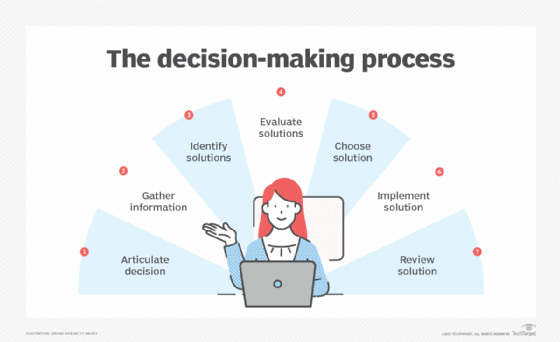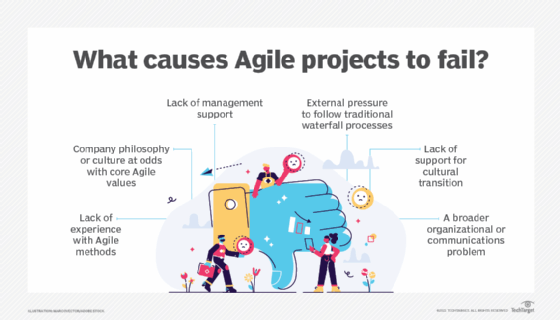In the digital age, link building has become an essential strategy for improving search engine rankings and driving organic traffic to websites. One effective way to secure quality backlinks is through content marketing, where compelling and valuable content attracts links naturally. However, not all content marketing efforts yield successful link building results. This article explores the best practices for link building through content marketing, offering valuable insights and strategies to help businesses and website owners boost their online presence and drive traffic through high-quality backlinks.
Importance of link building in content marketing
Link building plays a crucial role in content marketing as it helps to improve search engine rankings, drive referral traffic, and establish credibility and authority for your website. Here are some key reasons why link building through content marketing is essential:
-
Improving search engine rankings: One of the primary goals of link building is to improve your website’s visibility on search engine results pages (SERPs). Search engines like Google consider backlinks as a factor when determining the relevance and authority of a website. By obtaining high-quality backlinks from reputable sources, you can signal to search engines that your content is valuable and worth ranking higher.
-
Driving referral traffic: When you receive backlinks from other websites, you have the opportunity to attract visitors from those sites to yours. This referral traffic can be highly targeted and valuable, leading to increased brand awareness, engagement, and conversions.
-
Establishing credibility and authority: Acquiring backlinks from authoritative and relevant websites can help to establish your website as a trusted source of information in your industry. When other websites link to your content, it signals to users and search engines that your website is reputable and worth paying attention to.
-
Enhancing brand visibility: Link building can also help to increase the visibility of your brand online. When other websites link to your content, it exposes your brand to new audiences and can help you reach a wider demographic.
-
Building relationships: Link building is not only about acquiring backlinks but also about building relationships with other websites in your industry. By creating valuable and shareable content, you can naturally attract links from other websites, leading to mutually beneficial partnerships and collaborations.
In conclusion, link building is a fundamental aspect of content marketing that can have a significant impact on your website’s visibility, traffic, and authority. By implementing best practices for link building through content marketing, you can enhance your overall digital marketing strategy and achieve long-term success online.
Creating valuable and relevant content to attract natural links
-
Understand Your Audience: Before creating content, it is essential to understand your target audience’s interests, preferences, and needs. This knowledge will help you tailor your content to resonate with them effectively.
-
Keyword Research: Conduct thorough keyword research to identify relevant topics and terms that are popular among your target audience. Using these keywords strategically in your content can improve its visibility and attract more natural links.
-
Quality Content: Focus on creating high-quality content that is informative, engaging, and valuable to your audience. Content that provides unique insights, offers solutions to common problems, or presents data in a compelling way is more likely to attract natural links from other websites.
-
Visual Content: Incorporating visual elements like images, infographics, and videos can make your content more engaging and shareable. Visual content tends to attract more links and social shares, increasing its visibility and reach.
-
Long-Form Content: Creating in-depth, comprehensive content pieces can establish your authority in your niche and attract links from authoritative sources. Long-form content that covers a topic extensively and offers valuable insights is more likely to be linked to and referenced by other websites.
-
Interactive Content: Interactive content such as quizzes, calculators, or interactive infographics can encourage user engagement and drive more traffic to your website. This type of content is highly shareable and has a higher chance of attracting natural links.
-
Promote Your Content: Once you have created valuable and relevant content, leverage your existing networks and social media channels to promote it. Encourage sharing and engagement to increase its visibility and attract more natural links from reputable sources.
-
Monitor and Update: Regularly monitor the performance of your content and make necessary updates to keep it relevant and valuable. Fresh, updated content is more likely to attract natural links over time as it remains current and informative.
By focusing on creating valuable and relevant content, you can attract natural links from authoritative sources and improve your website’s search engine rankings.
Utilizing guest blogging and contributed content
-
Identify relevant websites: When looking for opportunities to guest blog or contribute content, the key is to identify websites that are relevant to your industry or niche. This ensures that the backlinks you receive are from reputable sources that are related to your own content.
-
Reach out to website owners: Once you have identified potential websites for guest blogging or contributed content, reach out to the website owners or editors with a well-crafted pitch. Explain why you would be a valuable contributor to their website and how your content can benefit their audience.
-
Create high-quality content: When writing guest blog posts or contributing content to other websites, it is crucial to create high-quality, valuable content. This not only increases the chances of your content being accepted but also enhances the reputation of your own website.
-
Include relevant backlinks: In your guest blog posts or contributed content, make sure to include relevant backlinks to your own website or specific landing pages. This helps to drive traffic to your site and improve your search engine rankings.
-
Promote your guest posts: Once your guest blog posts or contributed content is published, don’t forget to promote it on your own website and social media channels. This helps to drive traffic back to the website where your content is featured, further increasing the visibility of your backlinks.
-
Monitor performance: Keep track of the performance of your guest blog posts and contributed content by monitoring metrics such as traffic, engagement, and conversions. This helps you understand which websites are providing the most valuable backlinks and which types of content are resonating with your target audience.
By effectively utilizing guest blogging and contributed content as part of your link building strategy, you can increase the visibility and authority of your website while driving targeted traffic to your site.
Leveraging social media for link-building opportunities
Social media platforms are a goldmine for link-building opportunities when used strategically. Here’s how you can leverage social media for enhancing your link-building efforts within the realm of content marketing:
-
Sharing high-quality content: Use social media platforms to share your best content pieces regularly. By creating engaging posts with compelling visuals and captions, you can attract more traffic to your website, thereby increasing the chances of gaining more backlinks.
-
Engaging with influencers and industry leaders: Building relationships with influencers and industry leaders on social media can open up avenues for potential collaborations and link placements. Engage with their content, comment on their posts, and reach out to them with valuable insights to establish a rapport that could lead to link-building opportunities.
-
Utilizing hashtags strategically: Incorporate relevant hashtags in your social media posts to increase visibility and reach. By using popular hashtags within your niche, you can attract a larger audience that may include potential link-building prospects.
-
Creating shareable content: Craft your content in a way that encourages social sharing. Including share buttons on your blog posts or articles makes it easy for readers to distribute your content across their social networks, potentially leading to more backlinks.
-
Participating in industry-related conversations: Join relevant groups and communities on social media platforms where discussions around your niche take place. By actively participating in these conversations, you can position yourself as an authority in your field, attracting more attention to your content and generating link-building opportunities.
-
Monitoring brand mentions: Keep track of when your brand or content is mentioned on social media. Reach out to those who have mentioned you but not linked back to your website, politely asking for a backlink. This can help you capitalize on existing opportunities for link building.
By effectively leveraging social media for link-building opportunities, you can enhance the visibility and credibility of your website, ultimately driving more traffic and improving your search engine rankings.
Building relationships with influencers and thought leaders
-
Identify key influencers and thought leaders in your industry: Conduct research to identify influential individuals who are well-respected in your industry. Look for those with a large following, high engagement rates, and a strong reputation.
-
Engage with influencers on social media: Follow, like, comment, and share content from influencers on platforms like Twitter, Instagram, LinkedIn, and Facebook. Engaging with them will help you build rapport and establish a connection.
-
Collaborate on content: Reach out to influencers and thought leaders to collaborate on content creation. This could include guest blogging, co-hosting webinars, or creating infographics together. By working together, you can leverage each other’s audiences and increase your reach.
-
Attend industry events and conferences: Networking in person can be a powerful way to build relationships with influencers and thought leaders. Attend industry events, conferences, and meetups to connect with key individuals face-to-face.
-
Offer value: When reaching out to influencers and thought leaders, make sure to offer something of value. This could be sharing their content, providing insights or data that are relevant to their audience, or offering to help them in some way. Building a mutually beneficial relationship is key.
-
Build trust and credibility: Consistently engaging with influencers and thought leaders, providing value, and delivering on promises will help you build trust and credibility with them. Over time, this can lead to stronger relationships and potential collaboration opportunities.
-
Link opportunities: Once you have built a solid relationship with an influencer or thought leader, you can explore potential link building opportunities. This could include asking them to link to your content in their articles, guest posting on their blog with a backlink to your site, or co-creating content that includes links to your website.
By building relationships with influencers and thought leaders, you can not only improve your content marketing efforts but also establish your authority in the industry and drive more traffic to your website through high-quality backlinks.
Conducting outreach and public relations efforts
-
Identify target publications: Start by identifying publications that are relevant to your industry and target audience. Look for websites that have a high domain authority and authoritative content.
-
Craft personalized pitches: Create personalized pitches for each publication you reach out to. Tailor your message to the specific audience and explain why your content would be valuable to their readers.
-
Build relationships with journalists and editors: Develop relationships with journalists and editors at target publications. Engage with them on social media, comment on their articles, and attend industry events to network with them in person.
-
Use press releases: Write and distribute press releases about your content marketing campaigns and link-building efforts. This can help increase awareness and generate interest from journalists and publications.
-
Offer exclusive content: Provide publications with exclusive content that is not available anywhere else. This can help generate buzz and increase the likelihood of them linking back to your website.
-
Utilize social media: Promote your content on social media platforms to increase visibility and engagement. Tag journalists and publications when sharing your content to encourage them to take notice.
-
Monitor and track outreach efforts: Keep track of all outreach efforts and monitor the results. Analyze which publications are linking back to your website and continue to nurture relationships with those that provide the most value.
-
Engage with influencers: Identify and engage with industry influencers who can help amplify your content. Collaborate with them on guest articles, interviews, or social media partnerships to increase your reach.
-
Attend and speak at industry events: Participate in industry events and conferences to increase your visibility and establish yourself as a thought leader in your field. Speaking engagements can help you connect with journalists and publications in person.
By effectively conducting outreach and public relations efforts, you can increase the likelihood of earning high-quality backlinks to your website through content marketing. This proactive approach can help you build relationships with key influencers and drive traffic to your site.
Monitoring and analyzing the effectiveness of link-building strategies
To ensure that your link-building through content marketing efforts are successful, it is important to monitor and analyze the effectiveness of your strategies. Here are some key steps to follow:
-
Track your backlinks: Use tools like Ahrefs or Moz to monitor the backlinks to your website. Keep track of new backlinks, lost backlinks, and the overall quality of the links.
-
Analyze referral traffic: Use Google Analytics to track the referral traffic coming from the links you have built. This will give you insights into which links are driving the most traffic to your site.
-
Monitor keyword rankings: Keep an eye on how your target keywords are performing in search engine results. If your link-building strategies are effective, you should see an improvement in your rankings over time.
-
Assess social shares: Look at how often your content is being shared on social media platforms. This can be a good indicator of the quality and relevance of your content.
-
Engage with your audience: Monitor comments, shares, and mentions of your content online. Engaging with your audience can help you build relationships and potentially earn more backlinks.
-
Compare with competitors: Keep an eye on what your competitors are doing in terms of link building. Analyze their strategies and see if there are any opportunities for you to improve your own efforts.
By consistently monitoring and analyzing the effectiveness of your link-building strategies, you can identify what is working well and what needs improvement. This data-driven approach will help you make informed decisions about where to focus your efforts and resources for the best results.
Remember, link-building through content marketing is a long-term strategy, so it is important to track your progress over time and make adjustments as needed to achieve your goals.
Avoiding black hat tactics and focusing on white hat SEO practices
When it comes to link building through content marketing, it’s important to avoid black hat tactics and focus on white hat SEO practices. Black hat tactics may provide short-term gains, but they can have long-lasting negative effects on your site’s credibility and search engine rankings. On the other hand, white hat SEO practices are ethical and sustainable strategies that can help your website build authority and improve its visibility in search engine results pages (SERPs).
Here are some best practices to consider when it comes to link building through content marketing while avoiding black hat tactics:
-
Creating high-quality content: Produce valuable, relevant, and engaging content that naturally attracts backlinks from reputable websites.
-
Building relationships: Establishing relationships with influencers, industry experts, and other websites in your niche can lead to natural link opportunities.
-
Guest blogging: Publishing guest posts on reputable websites can help you earn quality backlinks and expand your online presence.
-
Broken link building: Identifying broken links on other websites and offering your content as a replacement is a legitimate way to acquire new backlinks.
-
Internal linking: Linking to relevant pages within your own website can improve user experience and help search engines better understand your site’s structure.
-
Monitoring and removing toxic links: Regularly audit your backlink profile to identify and disavow any toxic links that could harm your site’s SEO.
By following these white hat SEO practices, you can build a strong foundation for your website’s link building strategy. It’s important to remember that quality always trumps quantity when it comes to backlinks. Focus on creating valuable content, nurturing relationships with other websites, and prioritizing user experience to ensure long-term success in your content marketing efforts.
Conclusion
In conclusion, link building through content marketing remains a crucial aspect of any successful SEO strategy. By creating valuable and relevant content that naturally attracts links, utilizing guest blogging and contributed content, leveraging social media, building relationships with influencers, conducting outreach efforts, and monitoring the effectiveness of link-building strategies, businesses can improve their online visibility and organic search rankings. It is imperative to avoid black hat tactics and focus on white hat SEO practices to ensure long-term success in link building. By following these best practices, businesses can establish a strong online presence and drive organic traffic to their websites.
To learn more about effective link building strategies through content marketing, visit https://DeltaWriter.com. This website offers valuable resources and tools to help you enhance your link building efforts and drive more traffic to your website. Start implementing these best practices today to improve your online presence and increase your website’s visibility.

Director @Anyalpha, a Top Software Development Company offering Mobile App Development and Website Development Services to Businesses & Startups.



